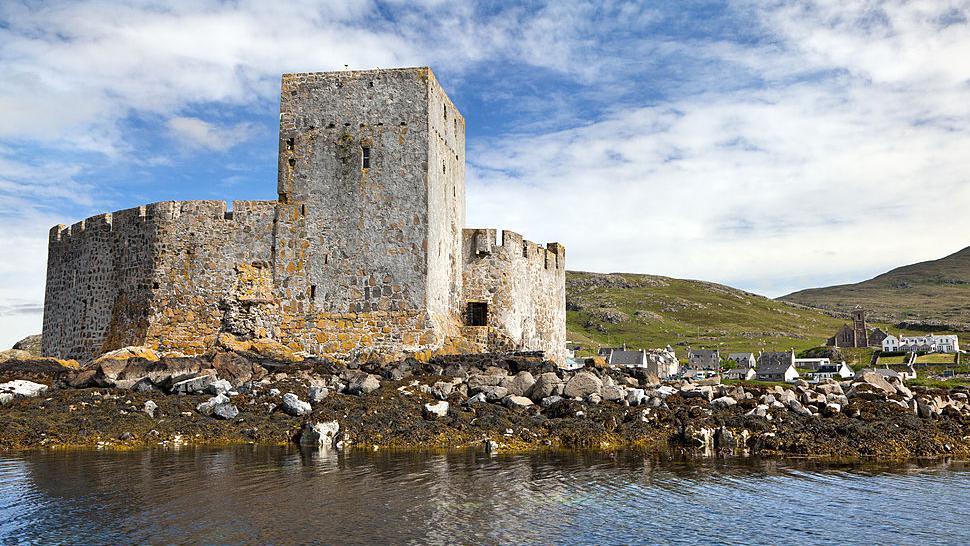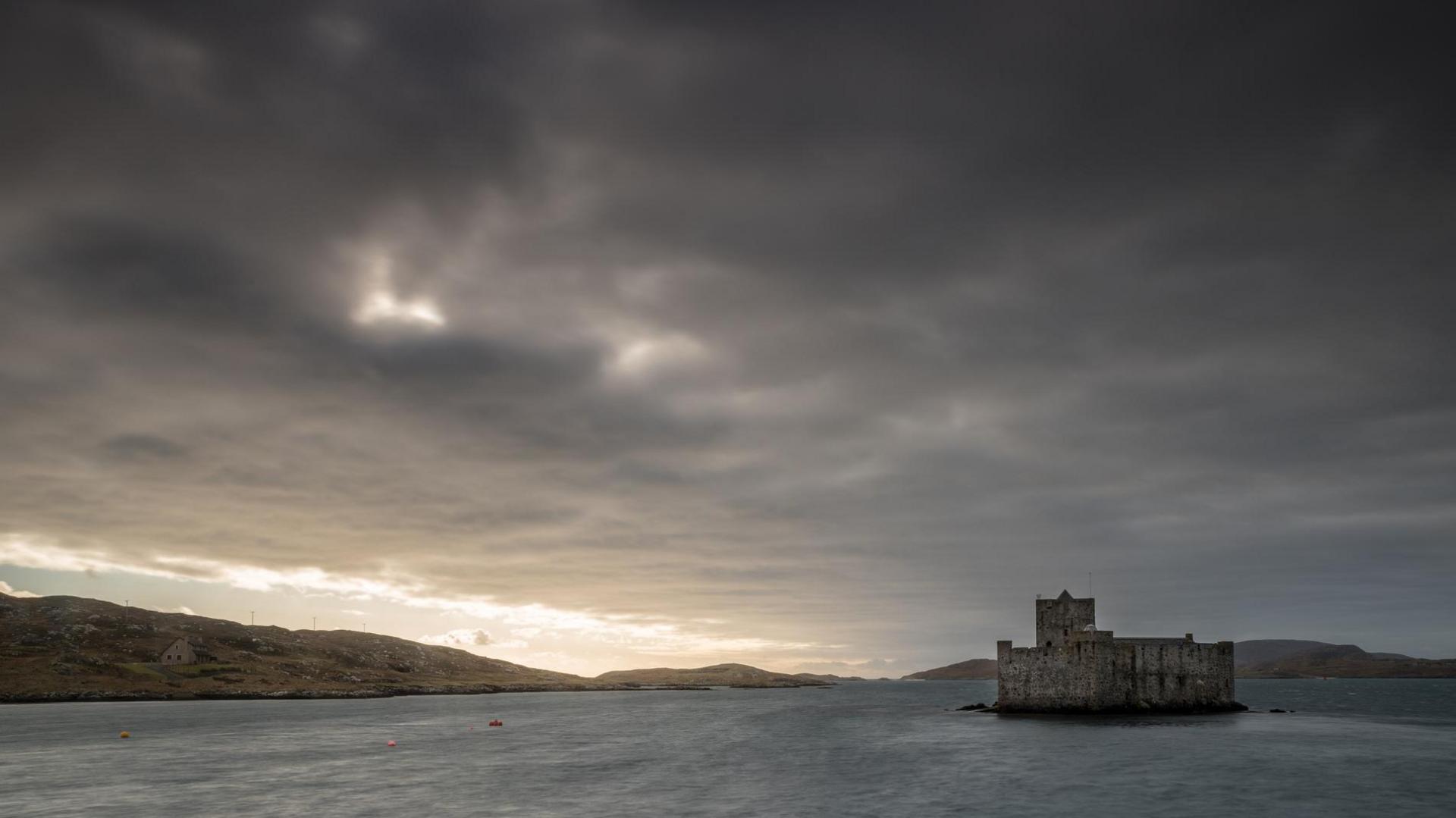Concerns over closure of isle's historic castle

Kisimul dates from the 15th Century
At a glance
Concerns have been raised on Barra about a lengthy closure of the island's Kisimul Castle.
Dating from the 15th Century, Kisimul has links to an ancient Irish warlord and 16th Century piracy.
Historic Environment Scotland, which manages the site, said it was closed due to safety concerns.
The organisation's predecessor, Historic Scotland, started a 999-year lease of the castle in 2000 for an annual rent of £1 and a bottle of whisky.
- Published
A historic clan stronghold in the Western Isles is likely to remain closed to the public for all of 2022, Historic Environment Scotland (HES) has said.
Isle of Barra's Kisimul Castle dates from the 15th Century and was built on a rock at Castlebay as a Macneil power base.
Concerns have been raised on Barra about the extended closure, particularly its impact on a clan gathering in August, external. The site has been closed since the start of the Covid pandemic.
HES said the castle had not reopened this year for safety reasons, with some floor areas and walls in need of repairs.
The public agency's predecessor, Historic Scotland, took over responsibility for managing and conserving Kisimul in 2000.
At the time the organisation signed a 999-year lease from Ian Roderick Macneil, 46th Clan Chief, for £1 and an annual rent of a bottle of Talisker whisky.
Kisimul is a well-known landmark in the Western Isles.
'Historic repairs'
HES said it understood the concerns expressed about the ongoing closure, adding that managing risks to staff and visitors was its first priority.
A spokesman said: “We intend to reassess the property soon to consider what options may be open to us and will continue to have dialogue with the owners and other relevant partners throughout that process.
"It is however, unlikely that the property will reopen this year unfortunately."
He added: “We are also planning to meet local MSP Alasdair Allan to discuss some of the issues we face at the property, including historic repairs which are coming to the end of their lifespan and have exacerbated the present condition of the monument.”
Mr Allan said the continued closure of Kisimul was disappointing, but he was looking forward to updates from HES.
He said: “Kisimul Castle is an iconic landmark both for the Isle of Barra and the Western Isles as a whole.
"Since its closure at the beginning of the pandemic, locals and tourists alike have been looking forward to its reopening following essential maintenance repairs, which are necessary to ensure visitors’ safety."
Mr Allan said he hoped tours of the property would resume as soon as it was deemed safe to do so.

Kisimul has a long history that includes an Irish warlord and a clansman who was arrested for piracy
Kisimul was a symbol of Gaelic power in the Middle Ages.
Its Gaelic name, Caisteal Chiosmuil, means castle of the rock of the small bay in English.
The chiefs of the Macneils of Barra claimed descent from legendary Niall of the Nine Hostages.
Niall was a 5th Century Irish warlord reputed to have fought against the Romans and armies of ancient Scotland, England and France.
The nine hostages are said to have been men seized during his campaigns abroad and were symbols of his power.
According to recent scientific research, Niall has up to three million living descendants who are spread out across Ireland, Scotland and North America.
Kisimul is thought to have been constructed on the orders of Gilleonan Macneil.
Below the castle he had a house built for the crew of his personal galley.
Another Macneil, known as Ruari The Turbulent, was arrested for piracy of an English ship during King James VI's reign in the 16th Century.